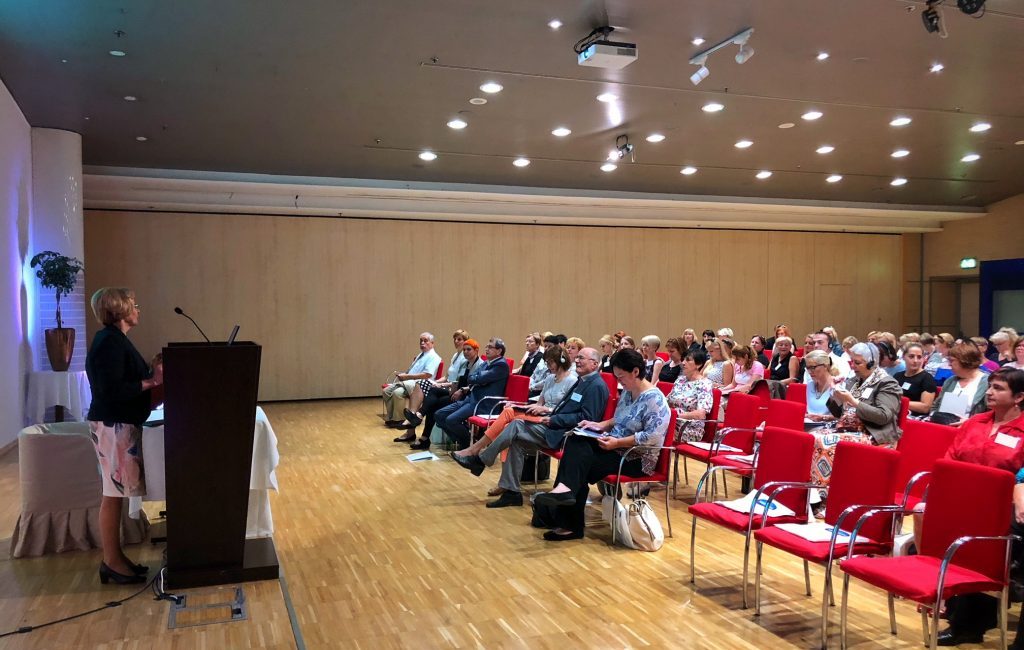This year, the International Continence Week was held between 18 and 24 June. During this week, the 2nd Continence+ 2018 International Conference was held as part of the DryDay project on June 21st.
The conference, organized by the non-governmental Emonicum Institute in cooperation with the Ministry of Health of the Republic of Slovenia, was attended by over 100 representatives of the profession, non-governmental organizations and companies. Participants from the World Health Organization, Age Platform Europe, lecturers from Italy, Hungary and Croatia, as well as experts in the field of health and the family management of continence disorders.
The conference was aimed at exchanging expert opinions in the field of incontinence management and its goal was establishing coordination and cooperation by actively involving patients to improve their position in society and reduce the stigma of the illness. The program, which would like to open the way towards a more societal understanding of incontinence, has covered various areas that we face on a daily basis: primary care, urology, gynaecology, paediatrics, long-term care and nursing homes.
According to the latest research presented at the conference, incontinence affects between 4% and 8% of the population, or nearly 400 million people worldwide. In the EU alone, this percentage represents as many as 50 million people affected. In Slovenia, its prevalence for women is 13.6% and is therefore slightly higher than in Western Europe and the USA. Statistics show that in Slovenia, 49.5% of women (15-30% in the USA) who are over 65 years old are so severely incontinent that they need treatment. In the reproductive period, 5-15% of women are incontinent. As many as 57% of women in nursing homes are incontinent (50% in the USA).
The prevalence of urinary incontinence, of course, increases with age, reaching 31% in women aged 45-50 years and 56% in women after 70 years of age. It is evident from this data that incontinence is one of the most common health problems in Slovenia as the Slovenian population is among the fastest ageing populations in Europe.
Although urinary incontinence is not a life-threatening disorder, it has a major impact on quality of life and, with its prevalence, is one of the most common and pronounced intergenerational health problems. Due to the strong stigma of incontinence in public, it is also one of the most pressing personal burdens. This is why it is all the more important to speak openly and aloud about the problems with the accidental leakage of urine and faeces.
If you have such a problem, consult your general practitioner to discuss it confidentially and find a solution. Quality of life comes first, so don’t delay and start living better now.
